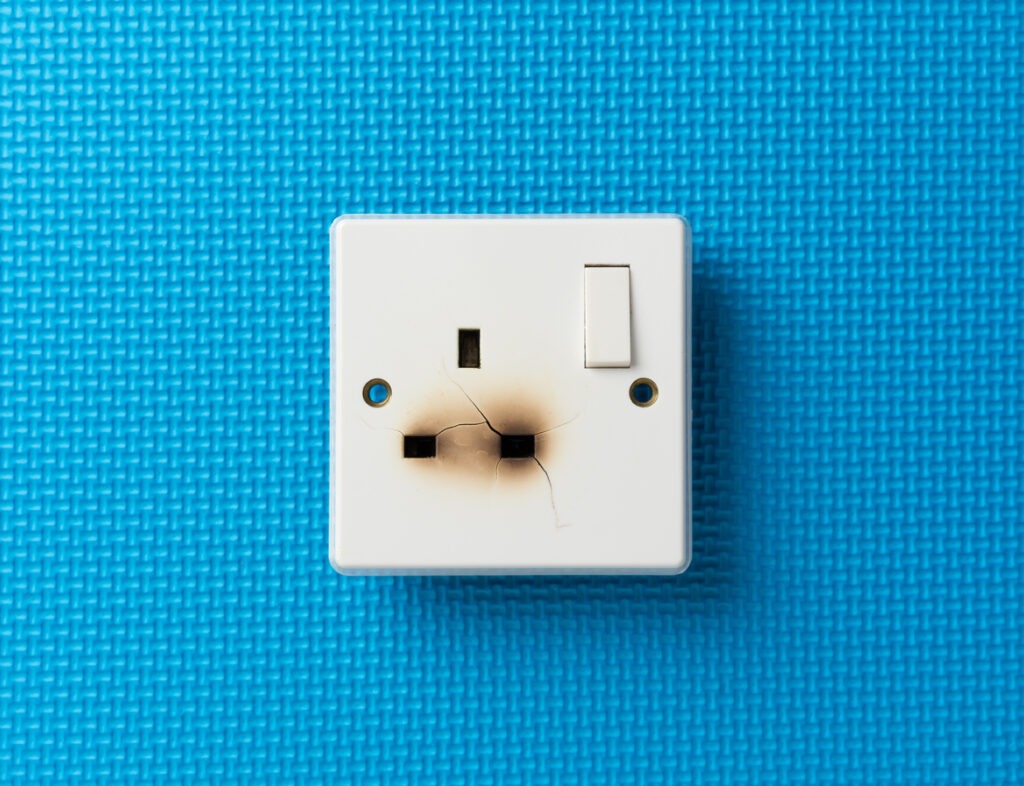Did you know that over half of the accidental domestic fires in the UK are caused by electricity? Most of these are caused by faulty or misused electrical products and most begin in the kitchen.
Tips to keep your home and loved ones safe from electrical fires.
Let us carry out electrical inspections: every 5 years we will ask to inspect and test the electrical installation in your home, including any equipment we own, to ensure it is safe and meets relevant regulations – this is known as an EICR. As your landlord we are legally required to carry out this periodic check, and it’s essential to make sure your home is safe.
Don’t overload adaptors by plugging many appliances into one socket, especially those with high electrical current rating such as kettles, irons and heaters.
Check appliance cables aren’t damaged and the plug is fastened securely to the cable. Regularly check plugs and sockets for burn marks, crackling sounds or if it feels hot to touch.
Don’t DIY – any electrical works must be carried out by a qualified electrician. If you need to make alterations to electrical wiring, please contact us to discuss as you’ll need our permission.
Check your smoke alarms are working throughout the year by pressing the ‘test’ button. Contact us straight away if they aren’t working.
Only buy electrical goods from a retailer you trust and follow manufacturer’s instructions when installing. Find out how to spot substandard electrical products online in this ‘Don’t be electricked’ article.
Turn off appliances when you’re not using them and don’t leave your washing machine or tumble dryer on if you’re out of the house or overnight. You can also check whether an appliance has had a safety recall using Electrical Safety First’s electrical product checker.
Only charge e-bikes, e-scooters, mobile phones and other appliances with lithium-ion batteries when you are awake and never overnight while you’re sleeping. Find out more about lithium-ion battery safety on our website.
Visit Electrical Safety First for more information about keeping your home safe from electrical fires.








